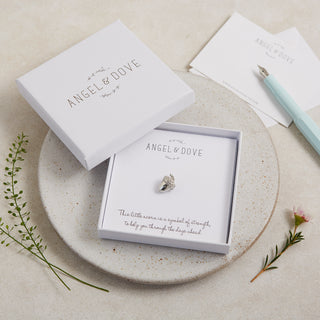
Giving your memories airtime can be a precious gift to yourself.
‘I walk down memory lane because I know I’ll find you there’. When you’re setting out on the painful path of grief, words like that can feel almost too raw. You might want to run away from the memories because they are a painful reminder that the person you loved is no longer here to make more.
But as grief evolves and perspectives shift, memory lane – with its unexpected turns and beautiful diversions – can become a place to take yourself to, or often simply somewhere you stumble across during your day.
“I find my dad everywhere,” says Clare, now in her 40s, whose father died five years ago. “Whether it’s in the music on the radio, the road where he taught me to drive, a trashy novel we both loved, or a joke we shared. Rather than forget him, as perhaps I feared I might, I see how many amazing memories I have of him, and actually it’s the mundane ones – him turning around to look at me in the car or coming and sitting on my bed when I was a moody teenager – that I treasure the most. The important thing, I think, is that I am open to them. I let those memories come, am diverted by them and enjoy them.”
Of course, if we think of it in black and white, having only memories left is a truly sad thing. We want that person back, of course we do. But there is also some comfort in the endless possibilities of remembering, the places it can take you, the feelings it can evoke, and with always the tantalising possibility that a time long forgotten will resurface like a delicious gift.

Karen Sutton, whose husband Simon died five years ago, is a great believer in keeping memories alive, for herself, her children and for their children to come.
“Having your own memories is important, but sharing them with others, and having them share back, is even more special.”
A photo album could be a good place to start creating a rich bank of memories, especially if someone’s life has been clouded by their death.
“If someone has died after a long illness, for example, creating an album of happy times can refocus your mind on all that they were before,” says Karen, who is now a grief coach, giving emotional and practical support to others.
“Of course memories can be painful but in time you will be able to shift your perspective and see them as some comfort. Sharing memories stops the person fading into the background and keeps them part of your life. My children were just five and nine when Simon died, so talking about him has been absolutely crucial. I also have my own ways to remember, like playlists of songs that remind me of him. Other memories catch me unawares in the strangest moments, and there is something I love about that.”
So next time the memories come flooding in, don’t run away from them. Memory lane is a funny old road. Who knows where it will take you.
5 Ways to Capture and Preserve Memories:
1. Write down memories in a journal or memory book, so you can come back to them time and again.
2. Create a photo album so you can look back on special times spent together.
3. Make a memory box of things that remind you of that loved one or friend
4. A memory jar is lovely project to make with children, like this idea from the children's bereavement charity Winston’s Wish.
5. Make a playlist on Spotify, Apple Music or YouTube of the songs they loved and that you shared together.


